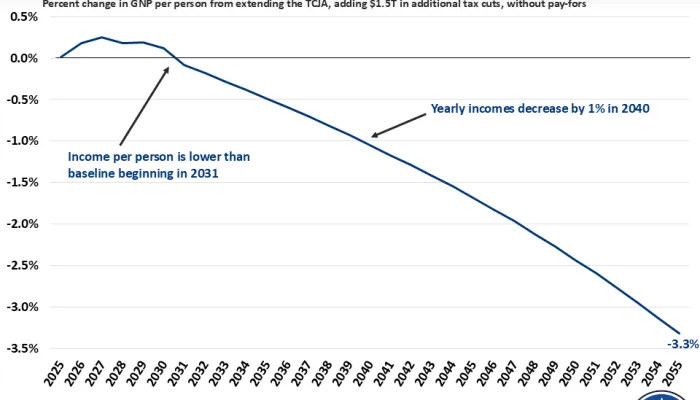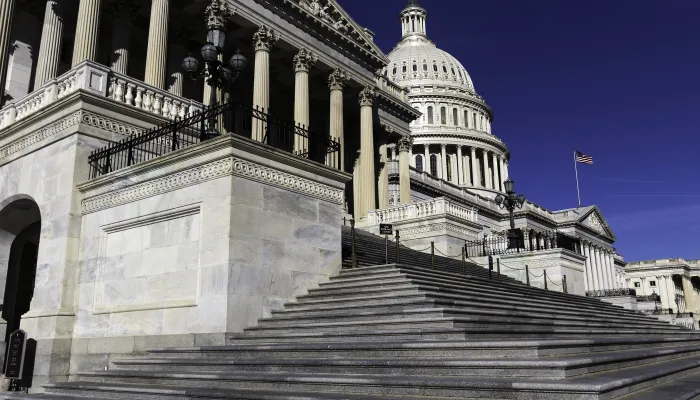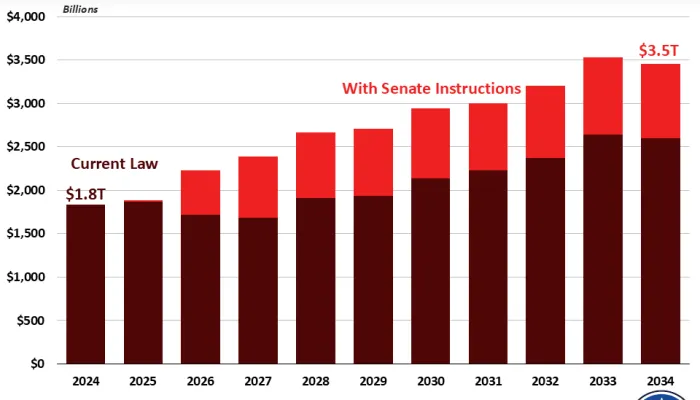Samuelson to Lawmakers: Spread the Pain
As Washington digests this year’s CBO Long Term-Budget Outlook, Robert J. Samuelson of The Washington Post offered up his criticism of the country’s current fiscal path: The elderly get too much. The real issue, he argues, is that massive and growing spending on the elderly threatens to crowd out domestic spending that liberals support and defense spending that conservatives support.
As he explains:
...budget deficits are not the problem. They are simply the consequences of the problem, which is that the combination of an aging society and expensive health care threatens many vital government functions. Whatever the economic costs of endless deficits — a controversial subject — the political effects seem straightforward. The young are being forced to subsidize the old through higher taxes and reduced public services. Some essential public services, starting with defense, are being sacrificed to avoid antagonizing the elderly.
Samuelson is not the only one concerned with the disproportionate growth of spending on the elderly. In an opinion piece in February, Forbes contributor Jeffrey Dorfman went as far as to accuse seniors of “bankrupting the country.” A New York Times analysis published earlier this month found that while younger Americans have struggled to see their incomes to keep pace with inflation, Americans ages 65 and older have made substantial gains.
Citing the growth of federal benefit programs like Social Security, Medicare, and Medicaid, which have swelled from a third to half the federal budget since 1990, Samuelson calls on policymakers to rein in “runaway spending on the elderly,” adding, “The proper response is to spread the pain.” He proposes raising the eligibility age, raising Medicare premiums, and reducing benefits to curb federal entitlement spending. In addition, he would terminate federal programs such as farm subsidies, which he argues are unnecessary, and raise certain taxes.
Samuelson bemoans the current administration’s lack of attention to reforming mandatory spending, and he warns that the still young 2016 presidential campaigns threaten to similarly ignore the issue as “Democrats plug fairer economic growth” and Republicans talk about entitlement reform “but concentrate their rhetoric on creating faster economic growth.” He continues:
Government’s central reality has gone missing. There’s a bipartisan triumph of political expedience over professed beliefs. Liberals shrink many domestic programs, because they won’t acknowledge that unchecked spending on the elderly is partially financed by curbing other activities — from food stamps to highway repairs. Conservatives weaken defense, because they won’t concede that, even with cuts to domestic spending (including the elderly), an adequate military cannot be financed without additional taxes.
Federal lawmakers must address the growth in mandatory spending soon, or their decisions will be made for them as mandatory spending crowds out other parts of the budget. The CBO report makes it clear that rising health care costs and an aging population make our current fiscal path unsustainable. Samuelson’s column offers a bracing injection of energy into the conversation.
Click here to read Samuelson's full article and here for our short analysis on the Long-Term Budget Outlook.


